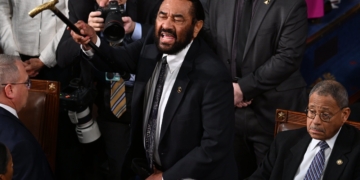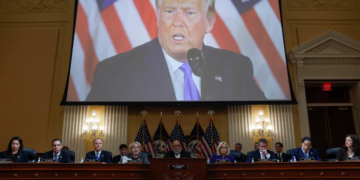Tyler Robinson, the suspect in the assassination of conservative activist Charlie Kirk, has been revealed to have been heavily influenced by leftist ideology despite growing up in a conservative family. Utah Governor Spencer Cox stated that Robinson became increasingly involved in political discussions over the past few years and expressed disapproval of Kirk’s views during family dinners. Robinson was a high-achieving student, earning a 4.0 GPA and a 34 on the ACT, and received a $32,000 scholarship before leaving college. Investigators are examining his motives, including messages found on bullet casings with anti-fascist slogans. Kirk, founder of Turning Point USA, had been a prominent voice for conservative youth and Trump supporters. The case has drawn national attention, highlighting the role of ideology, online exposure, and political polarization in acts of violence.
Tyler Robinson Immersed in Leftist Ideology
Utah Governor Spencer Cox told The Wall Street Journal that it was clear to investigators that Tyler Robinson was deeply immersed in extreme leftist ideology. Robinson’s political leanings reportedly shaped his attitudes during family discussions about events planned by Kirk at Utah Valley University, expressing disagreement with Kirk’s conservative positions. Authorities are still piecing together how Robinson transitioned from a high-achieving student in a conservative environment to a suspect in a politically motivated assassination.
High-Achieving Student Background
Robinson excelled academically, earning a 4.0 GPA and a 34 out of 36 on the ACT exam. He received a $32,000 scholarship and began studies at Utah State University in Fall 2021, completing only one semester before moving to a vocational electricity program at Dixie Technical College, where he is now in his third year. According to family reports, Robinson spent extensive time online, participated in firearms training from a young age, and had been socially engaged through school and community programs. Despite his achievements, the motivations behind his violent actions remain under investigation.
Arrest and Family Cooperation
Authorities apprehended Robinson following a widespread search. Governor Cox announced his identity during a press conference shortly after President Donald Trump confirmed on Fox News that the suspect had been surrendered by someone close to him. Trump expressed hope that Robinson would face the death penalty, describing the suspect as responsible for the assassination of his ally, Charlie Kirk. Trump’s statements emphasized the national concern over politically motivated violence and the need for accountability.
Messages on Bullet Casings
Investigators discovered bullet casings inscribed with anti-fascist slogans such as “Hey fascist! Take this!” and the phrase “Bella ciao,” referencing a famous Italian anti-fascist song. These inscriptions suggest ideological motivation and indicate that Robinson may have acted with political symbolism in mind. Authorities are examining his online presence, communications, and social networks to understand the depth of his ideological influences and possible connections to extremist groups.
Charlie Kirk’s Background and Influence
Charlie Kirk founded Turning Point USA in 2012 to promote conservative views among youth, becoming a prominent media figure and public speaker. He used TikTok, Instagram, and YouTube to engage with supporters, discuss immigration policies, gun rights, and Christian values, and provide commentary on political events. Kirk often appeared on television networks as a spokesperson for conservative ideas and leveraged his social media presence to mobilize young supporters. Kirk’s activism included defending “family values” and “America First,” alongside vocal support for President Trump, who mourned Kirk’s death publicly.
National Reactions and Political Tensions
The assassination has drawn reactions across the United States, highlighting deep political divisions. Conservative media and groups have condemned left-wing extremism, framing the attack as symptomatic of ideological radicalization. Meanwhile, liberal commentators emphasize the role of inflammatory rhetoric and polarization in contributing to a climate of political violence. The case has reignited debate over free speech, social media influence, and the impact of extremist ideologies on vulnerable individuals. Social media scrutiny of Robinson’s activities is ongoing, with authorities seeking to determine the influence of online communities on his radicalization.
Ongoing Investigation and Security Measures
Federal and state investigators are analyzing Robinson’s connections, potential support networks, and communications to determine whether the act was influenced by external groups. Law enforcement is working to prevent further politically motivated violence, reinforcing security measures and monitoring threats nationwide. The case serves as a reminder of the intersection between ideology, online influence, and violent action. Authorities continue to examine every aspect of Robinson’s background, including his academic record, familial environment, and online presence, to understand the full scope of his motivations. Investigative efforts aim to provide clarity and prevent future incidents while balancing civil liberties and national security concerns.













